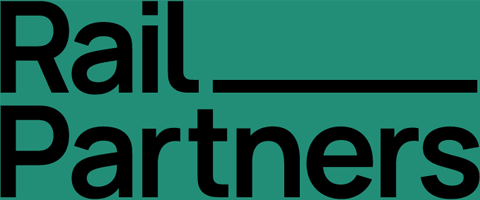
Rail industry leaders assemble for summit to unlock benefits of open access for passengers
- Railway industry leaders assembled today in London for a summit on open access rail operations and how to encourage new open access services across Britain’s rail network.
- The session, hosted by Rail Partners, was attended by senior representatives from government, the regulator, infrastructure manager and operators.
- Open access operations can offer a range of benefits for passengers, including increased services to underserved communities, more choice and lower fares. They have also been shown to deliver environmental benefits through modal shift from air and road, to rail.
Rail industry leaders came together today in London for Rail Partners’ Open Access Summit, to discuss unlocking the potential of open access rail operations within Britain. The discussion focused on how to encourage new open access services onto the rail network for the benefit of passengers and how best to remove existing barriers to prospective market entrants.
The event was attended by Rail Minister, Huw Merriman – a longstanding advocate of open access operations, representatives from the Department for Transport and the Treasury, Network Rail, the Office of Rail and Road, private sector open access operators, ROSCOs and retailers, as well as owning groups – including Arriva Group, FirstGroup, Mitsui, MTR, Trenitalia and Transport UK. It is the first time in several years the most senior stakeholders in rail have gathered to look at the opportunities and challenges associated with open access.
As part of a wider railway landscape, including state or contracted private operators that deliver an important public service, open access operations have been shown to deliver a range of benefits for passengers.
Currently open access operations in Great Britain are largely limited to the East Coast Mainline, leaving significant potential for expansion. Removing barriers such as long approval processes and high entry costs is one way to encourage operators to look at where there is a commercial case for new services – delivering more choice and services for passengers.
Independent research carried out by Arup and Frontier Economics, commissioned by Rail Partners, showed that where ‘on-rail’ competition existed in the European market (where multiple operators compete for business on the same routes), many benefits were observed:
- Service levels increased, with up to 60% more departures on some routes
- The overall number of passengers increased by up to 40% – demonstrating an increase in overall demand for rail, rather than simply a shift in existing demand
- Fares were 15-50% lower when the new operator entered the market and 20-60% lower over the long run
- Train operators worked to attract passengers through improving rolling stock and offering new or innovative services such as better Wi-fi, digital ticketing or loyalty schemes.
Open access has also been shown to increase modal shift, moving passengers away from more carbon intensive forms of transport like road or air, and on to rail.
Rail Partners and its members are urging the regulator, operator and infrastructure manager to come up with measures to deliver more open access. This could include examining post-covid demand for rail services to identify new opportunities for open access, and additional support through the applications process, making it quicker to get to market – and encouraging more companies to put forward proposals. Updating the regulatory framework would allow for the economic, environmental and social benefits of a new service to be considered alongside the basic business case.
Following the summit, Rail Partners chief executive, Andy Bagnall, said:
‘Alongside the important role played by contracted operators, open access services have the potential to deliver really tangible benefits for passengers and communities across the UK.
‘Currently, the system is not set up to fully unlock that potential, or attract new entrants into the market. That’s why bringing together so many senior industry colleagues to work together, find the solutions, and remove those barriers is so important, and we’re optimistic that we will see measures to support open access in the near future.’
David Brown, Managing Director, Arriva UK Trains said:
‘Open-access operators, like Arriva’s Grand Central, are of vital importance to our railway, driving competition and innovation at the same time as connecting areas of the country that are underserved by the regular timetable.
‘Today’s summit was a welcome first-step in ensuring the role of open-access operators is not only safeguarded but encouraged to grow. We must now seize this opportunity to help establish a simpler and more streamlined process for open-access applications.’
Notes to editors
Notes to editors
- The Rail Partners Open Access Summit took place on Monday 27 November, at 1 Great George Street, Westminster, London. Photographs can be accessed here.
- The benefits associated with ‘on-rail’ competition, including open access operations are explored in Section 3 of our publication Track to Growth: Creating a dynamic railway for passengers and the economy. Access the publication in full here.
- The summit was attended by senior representatives from the following organisations:
Rail Partners, Department for Transport, HM Treasury, 10 Downing Street, the Office of Rail and Road (ORR), Network Rail, GBRTT, Angel Trains, Trainline, Arriva Group, First Rail, Mitsui, MTR, Transport UK Group, Trenitalia UK, Grand Central, Grand Union Trains, Lumo and Hull Trains.
About Rail Partners
Rail Partners exists to make the railway better by harnessing the expertise and creativity of private sector operators for the benefit of those who use the railway, passengers and freight customers, and those who pay for it, including taxpayers.
Rail Partners provides advocacy and policy solutions for its private sector passenger owning group and freight company members. Rail Partners additionally provides technical services to train operating companies in both the public and private sectors.
